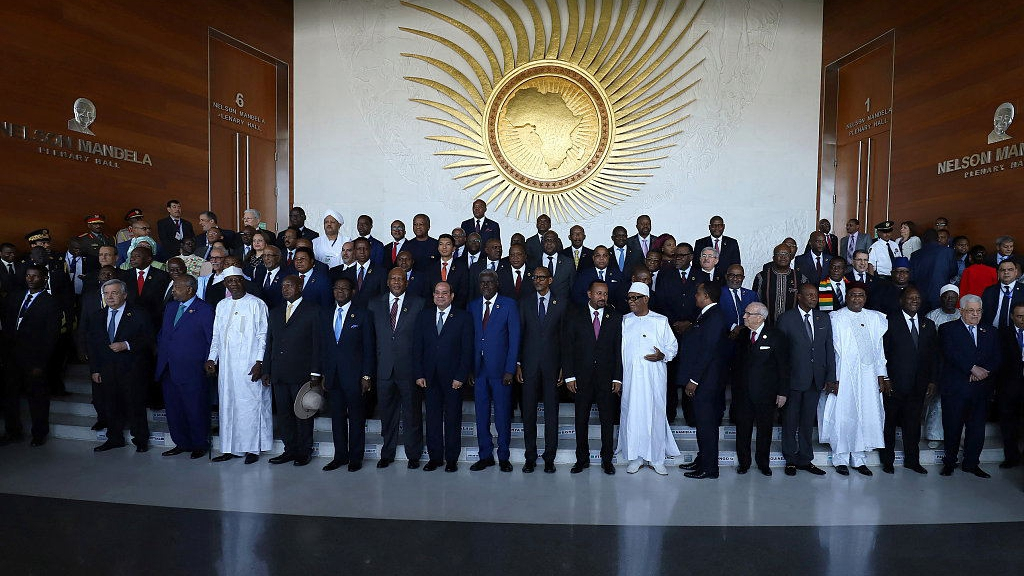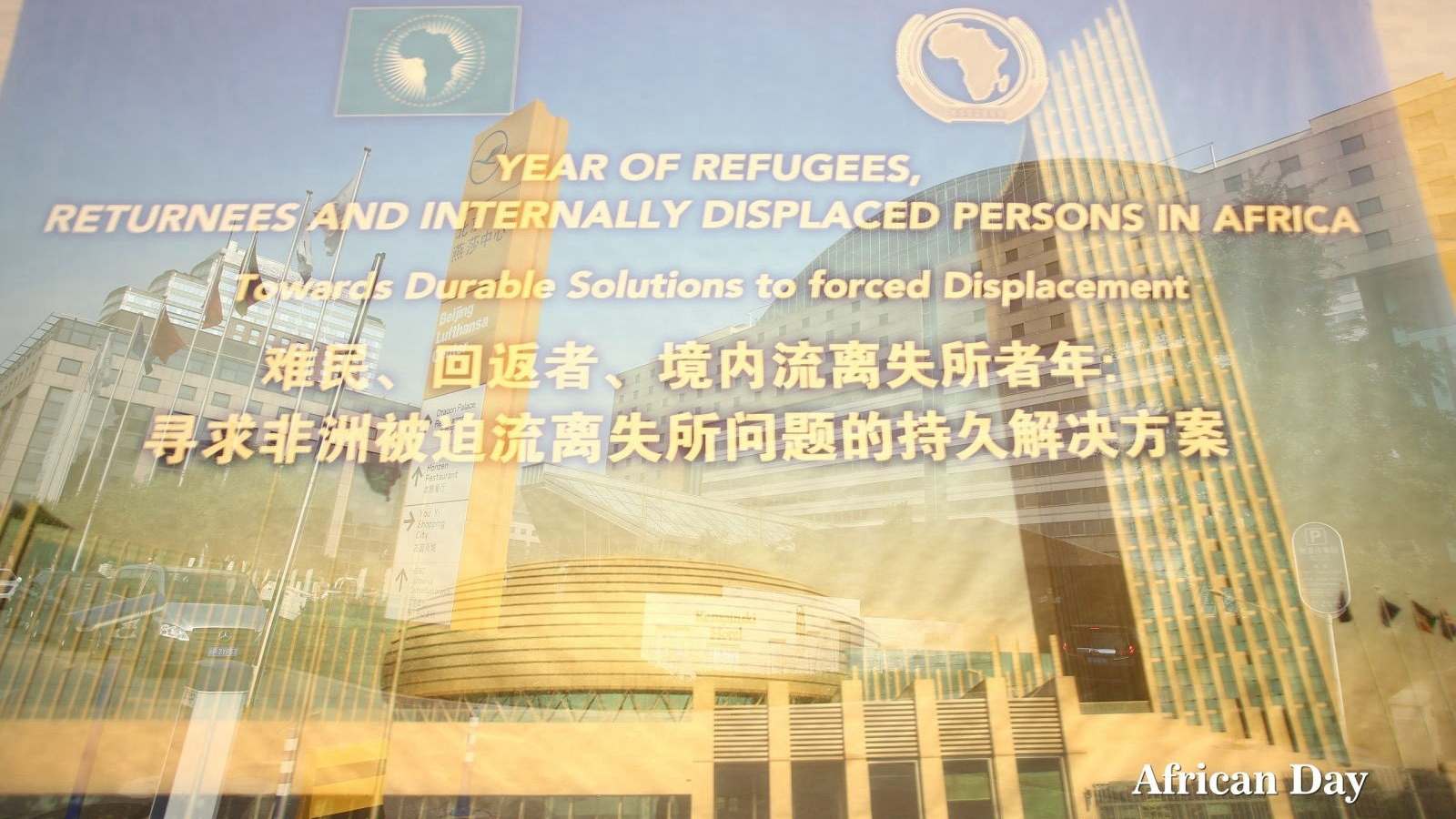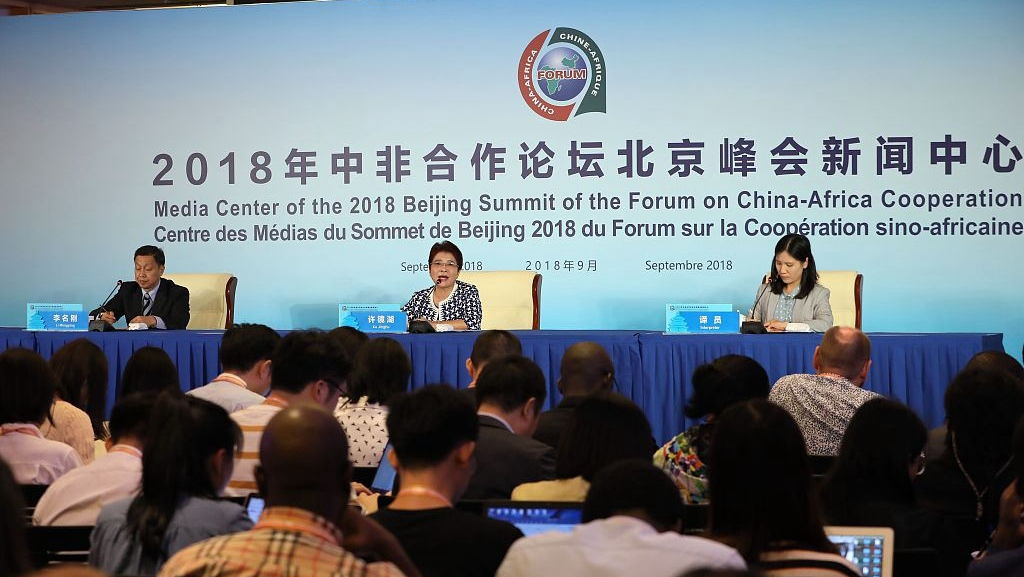
Opinion
22:45, 26-May-2019
African nations stand at a crossroads today
Shen Shiwei

Editor's note: Shen Shiwei is a research fellow at the Charhar Institute and a former government relations and business consultant for Chinese enterprises in Africa and the Middle East.
The Africa Day was established on May 25, 1965 by the then Organization of African Unity (OAU). Its successor, the African Union (AU), has shown determination to end Western colonization and exploitation, and win national liberation and prosperity for the whole continent.
Today, African nations are standing at a crossroads.
On one hand, the vast continent of 1.1 billion people, mainly young people, and more than 50 countries are on the rise as the African Continental Free Trade Area takes effect at the end of May, unleashing huge potentials.

A celebration to mark Africa Day was held in Beijing, May 25, 2019. /Photo courtesy of Shen Shiwei
A celebration to mark Africa Day was held in Beijing, May 25, 2019. /Photo courtesy of Shen Shiwei
On the other hand, Africa is facing rising challenges including economic slowdown affected by rising protectionism, huge gap in financing, urgent infrastructure, limited borrowing capacity, and fragile security in countries such as South Sudan and the Central African Republic (CAR).
All these factors have undermined Africa's stability and increased the burden of forcibly displaced Africans, which inspired the theme of this year's Africa Day – "Year of Refugees, Returnees and Internally Displaced Persons in Africa, Towards Durable Solutions for forced Displacement."
According to the UN, Africa is home to over 24 million forcibly displaced persons including refugees, representing one-third of the world's total. Forced displacement poses a real threat to this vast continent to achieve peace, prosperity and development.
Why are forcibly displaced persons on the rise in Africa?
Northern Africa and the Horn of Africa are one of the main sources of refugees and displaced Africans. Indeed, it is because countries like Somalia and Libya are victims of unwarranted Western military interventions. Today, Somalia is still on a bumpy road towards national reconstruction, while conflict-ridden Libya still suffers from turmoil.
As for economy, African countries are vowing to reverse deindustrialization trends that have taken root during the 1980s and 1990s. At the time, political and structural reforms including privatization were imposed by Western countries and West-led organizations via "hidden debt intervention."
The imposed reforms often came with political conditions and severely destroyed industrial capacity, like textile and manufacturing, in many African countries like Nigeria and Tanzania.

This year's Africa Day theme is "Year of Refugees, Returnees and Internally Displaced Persons in Africa, Towards Durable Solutions for forced Displacement." /Photo courtesy of Shen Shiwei
This year's Africa Day theme is "Year of Refugees, Returnees and Internally Displaced Persons in Africa, Towards Durable Solutions for forced Displacement." /Photo courtesy of Shen Shiwei
It became a story of stolen wealth and "poverty trap" by the West as depicted in an article by Joseph Stiglitz, ex-chief economist of the World Bank. Meanwhile, "No political strings" and "non-interference" are fundamental principles of Chinese loans and aid to Africa.
What solutions do African nations have?
Ending poverty and conflicts, achieving full economic independence via industrialization and fully opposing unwarranted military interventions should be prioritized. These core values have been adopted in the AU's 2063 agenda.
Moreover, the awareness of "independent development" and "joint self-improvement" in Africa should be significantly enhanced. "Unite to be strong" is a key principle that China has adhered to in dealing with African countries over the years.
Today, African countries are accelerating their industrialization process through industrial parks, and regional organizations like SADC, EAC, among others.
Several pillar regional organizations have drawn up blueprints for the establishment of free trade zones, customs unions, common markets, monetary unions and even political alliances.
By the end of May, the historic African Continental Free Trade Area (AFCFTA) agreement signed by 44 African countries will take effect. It is a free trade bloc of 1.2 billion people with a total GDP of more than 2 trillion U.S. dollars. That would be a giant leap forward for Africa.
Besides the role of regional organizations, China-Africa cooperation under the Forum on China-Africa Cooperation (FOCAC) and other mechanisms have vitalized African economy in the past 10 years.

A press conference at the Media Center of the 2018 Beijing Summit of the Forum on China-Africa Cooperation, September 4, 2018. /VCG Photo
A press conference at the Media Center of the 2018 Beijing Summit of the Forum on China-Africa Cooperation, September 4, 2018. /VCG Photo
A 2017 McKinsey & Company report titled "Dance of the Lions and Dragons" notes that across trade, investment, infrastructure financing, and aid, there is no other country with China's depth and breadth of engagement in Africa.
In five decades, Africa has developed from a continent that is fragmented, slaughtered, and enslaved to a continent with more than 50 independent countries, which are gradually moving towards unity through multilateral integration frameworks.
When the giant Africa free trade deal comes into effect this July, the desire of the first African Day celebrated in 1965 will be further realized, and Africa would get a step closer to the "African Revival Dream" of achieving independence, peace and prosperity.
(Cover image: African heads of state pose for a group photo during the opening of the 32nd Ordinary Session of the Assembly of the Heads of State and the Government of the African Union (AU) in Addis Ababa, Ethiopia, February 10, 2019. /VCG Photo)
(If you want to contribute and have specific expertise, please contact us at opinions@cgtn.com.)

SITEMAP
Copyright © 2018 CGTN. Beijing ICP prepared NO.16065310-3
Copyright © 2018 CGTN. Beijing ICP prepared NO.16065310-3